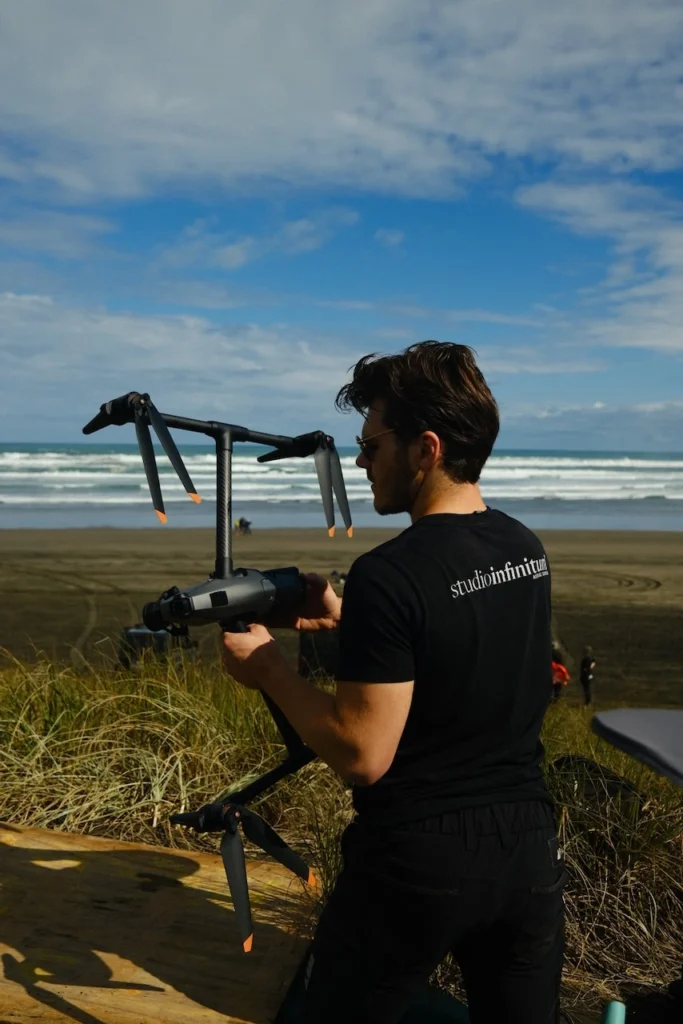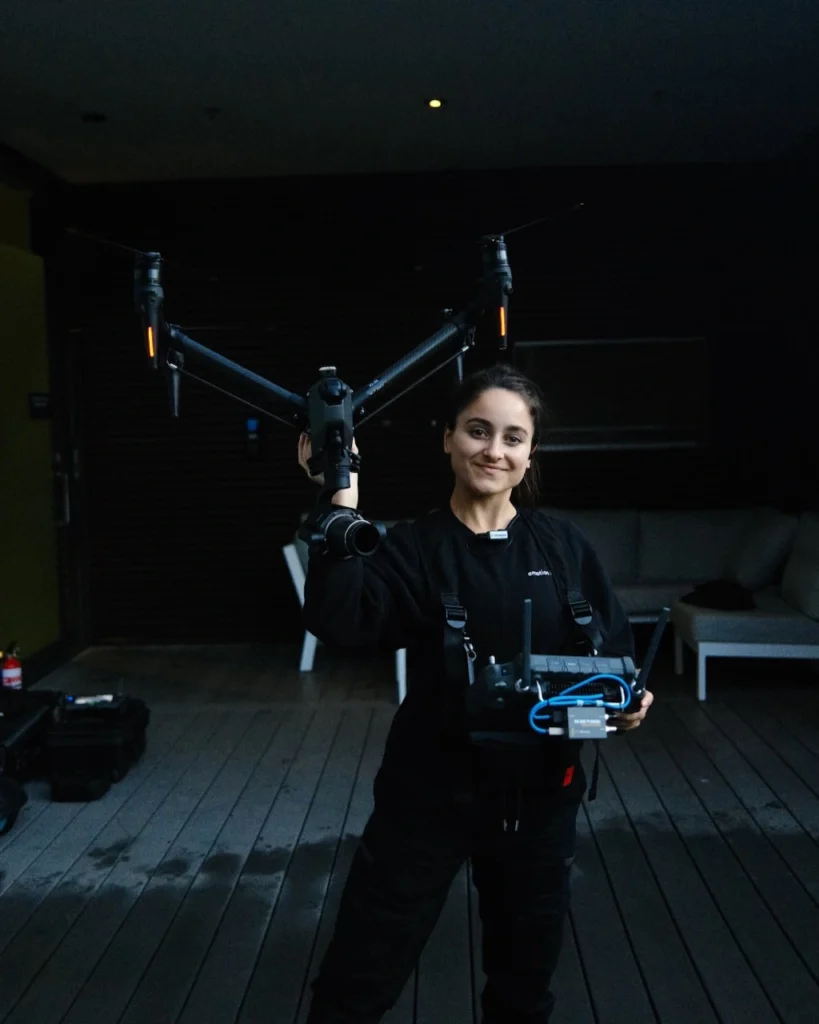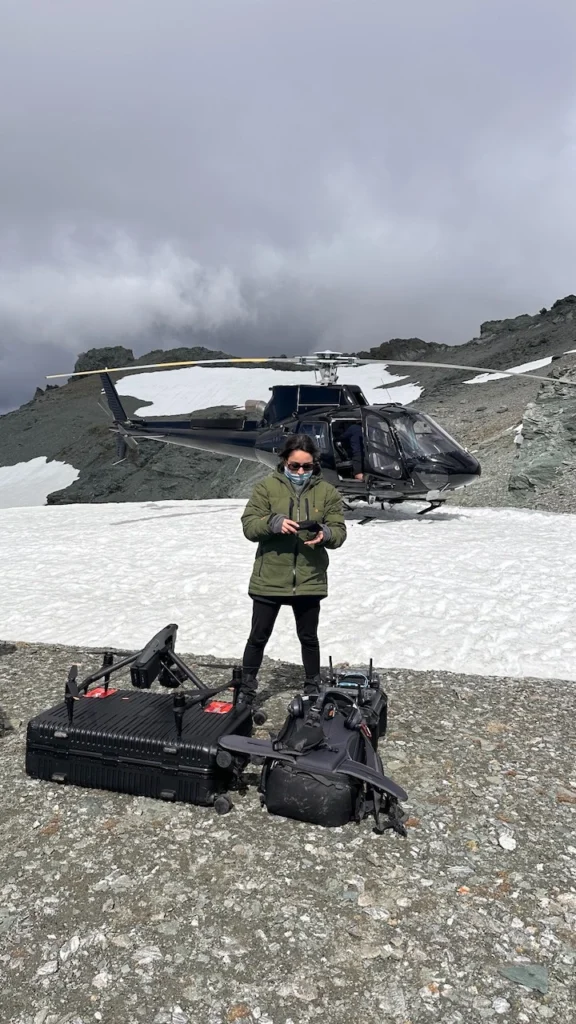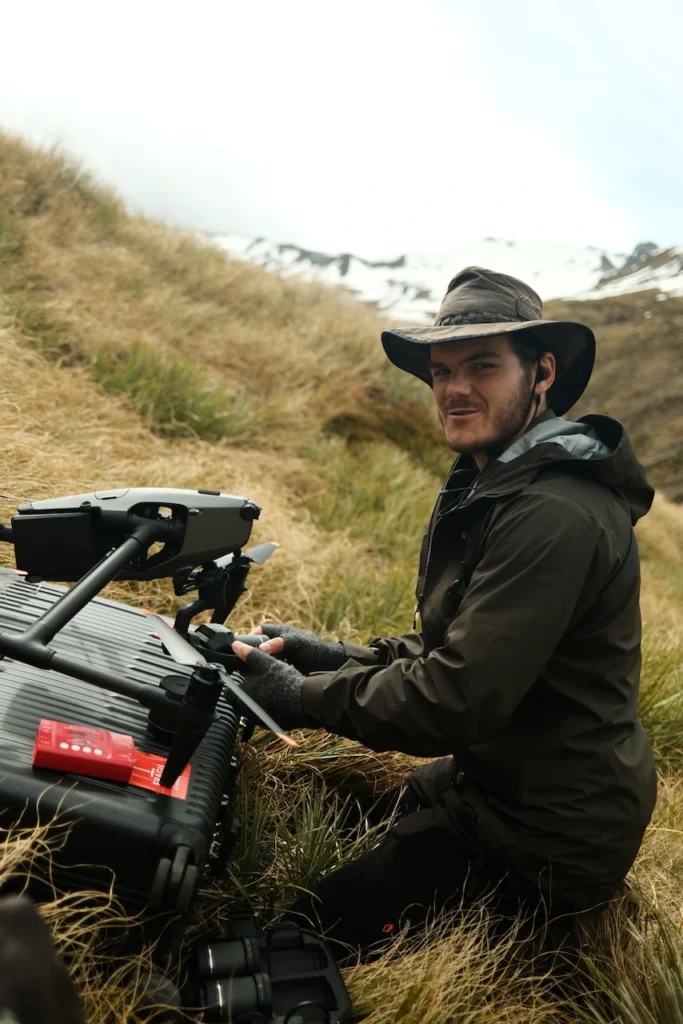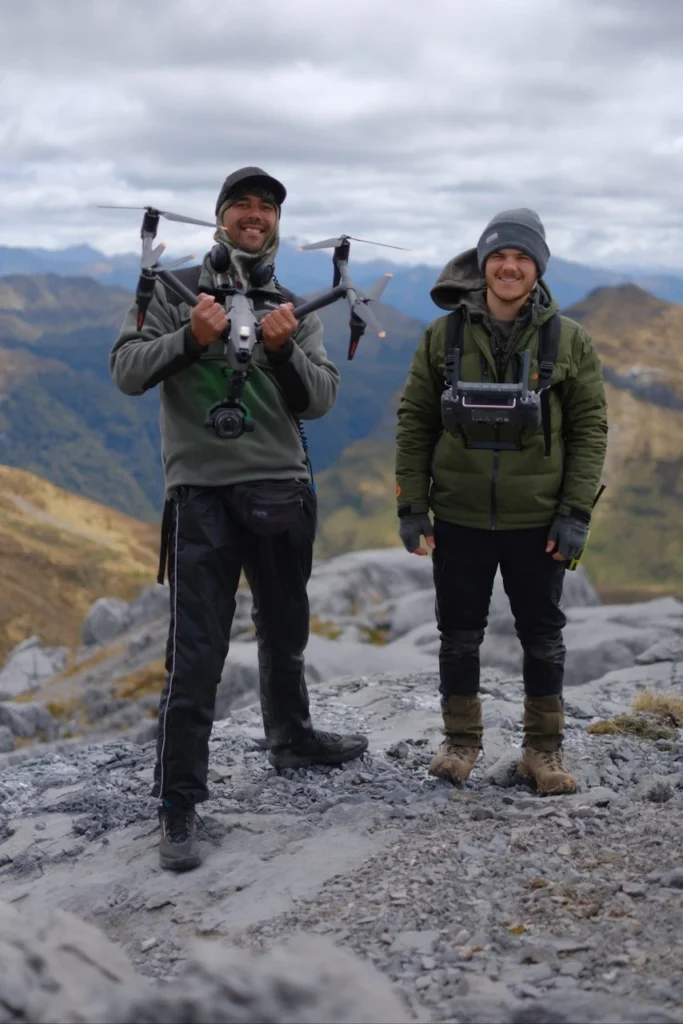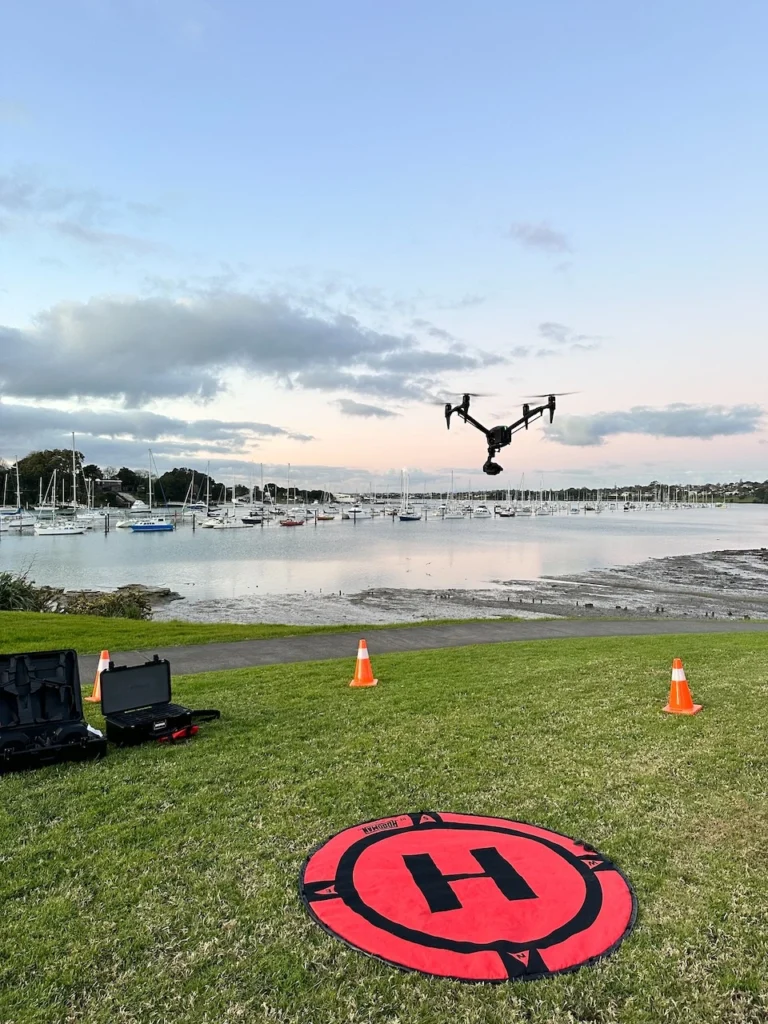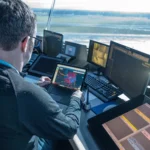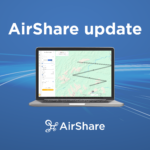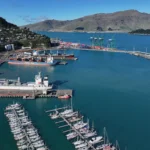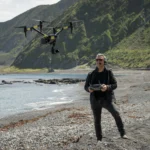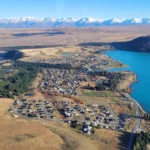In this profile, Oliver Compton, Managing Director of Studio Infinitum, tells us a bit about his business and their use of AirShare to help keep the skies safe.
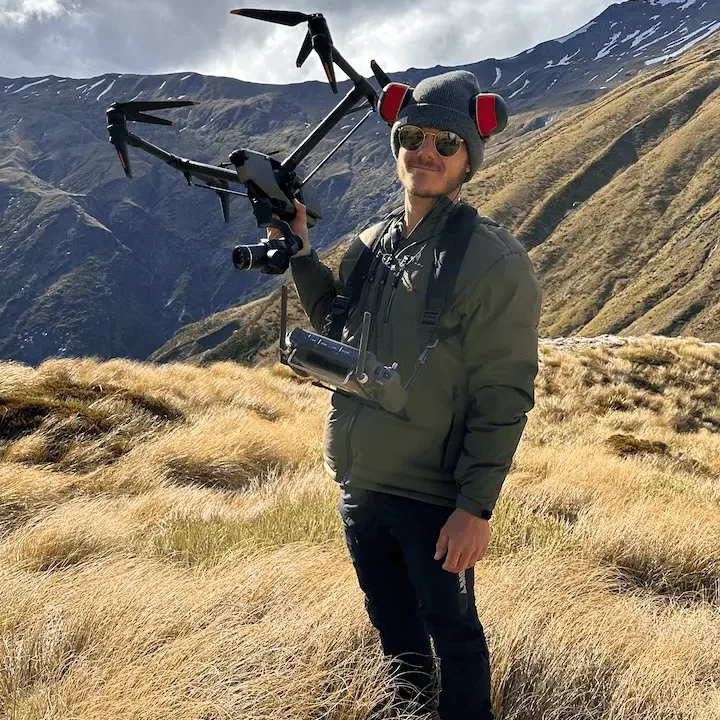
Studio Infinitum is a New Zealand based professional drone team for film, television, live broadcasting and more. They are CAA Part 102 certified in New Zealand for commercial unmanned aerial system operations, and have been logging their flights in AirShare since its inception in 2014.
Tell us a bit about your business and your use of drones?
Studio Infinitum Aerial Camera provides drone and specialised aerial cinematography services to the film, television and content industry. We utilise large heavy-lift drones with camera packages, to DJI drones and smaller FPV drones.
How do you ensure safety during your drone operations, and what are some of the biggest safety challenges you face?
We spend significant time before each project on ironing out all of the variables that cause safety concerns. This involves a preflight due diligence process and notifications to any parties that may be affected by our operations. It also involves producing detailed hazard assessments and flight maps, so we can share flight locations with people that need to be aware. As drone pilots operating in a contracting capacity, we are 100% responsible for our operations. Every time we put an aircraft in the air, a satisfactory level of safety must be met prior. However, levels of risk change constantly and managing this while in flight, is imperative. It is for this reason we always advocate for a second person to accompany the pilot on all jobs, regardless of whether it is legally required or not depending on airspace type. Loading up a pilot with too many responsibilities can degrade safety and it is for this reason, flying drones are always a team effort in our business.
The biggest safety challenges in our business are bird attacks, unlicensed operators and rogue drones that seem to appear every now and again, especially in built-up areas. These hazards are serious and we are constantly managing the risk of these things as we work.
How do you see the role of drones evolving over the next five years, especially in your area of expertise?
As drones are further integrated into operational airspace and situational awareness of the presence of these types of aircraft is improved, I see they will begin to have opportunities in critical services, and other roles that improve safety of human health and fill a void where manned helicopters are too large or are too expensive. Most drone evolution is happening in the Military space, and given the times we are living in, most if not all drone innovation, in some way, is currently in military and defence systems. In terms of filmmaking, they have revolutionised aerial cinematography and creative possibility, but in reality I fear are greatly in danger from Artificial Intelligence or artificially created imagery, that is becoming so life like that some opportunities to film are being replaced by computer generated images.
We have enormous responsibility with the development of UAV systems, as they have been shown in military use cases to cause major damage and catastrophic events, and be highly effective at it. We all collectively have responsibility to set good examples and improve the safety of people, and not degrade it. There are millions of people in the world that are afraid of UAV’s and what they can do, but also, they are a technical marvel capable of doing wonderful things, and I think that it is everyone’s responsibility to set good examples and carry out their operations for the benefit of humanity, diligently and with professionalism.

“Airshare has been an important bridge of communication between us and Air Traffic Control.”
How long have you been using AirShare to log your flights, and how many flights have you logged?
We have been using Airshare since it began, and it has improved a lot over the years. We use Airshare in controlled airspace and Flight Advisor in uncontrolled airspace. Collectively we have logged over 2000 flights, 450 of these on Airshare.
How has your use of AirShare supported the safety and success of your business?
Airshare has been an important bridge of communication between us and Air Traffic Control. For us, the biggest benefit of the entire platform was when Airshare flights began appearing in Flight Advisor, in which we are able to clearly see other drone users as we so often need to do. The nature of the industry means it is greatly affected by weather, and having the ability to edit flights and times has been fantastic, as the flexibility of doing these things in real life are important.
What advice would you give to new drone pilots, around safety and the use of AirShare in their operations?
Anyone can fly drones. A good operator should realise that flying the drone itself is only really 20% of a job. 80% of it is safety and mitigating risk. In a world where it is a race to the bottom, and balancing that with still winning opportunities for work, always do so with safety in mind and never compromise on this. Drone pilots are solely responsible for their operations, and you are only as good as your last job. If you have an accident, and accidents can and do happen, know what you are going to do. Have an attitude towards the safety of people and fly with the peace of mind that you have carried out your responsibilities to the best of your abilities. Every accident that happens can affect rules and privileges, and if you haven’t carried out the right procedures, the industry can pay for it. At the end of the day, drones are aircraft operating in airspace with manned aircraft. There are no shortcuts in aviation. If we all have this mindset, that is the foundation to a prospering and world leading industry.
